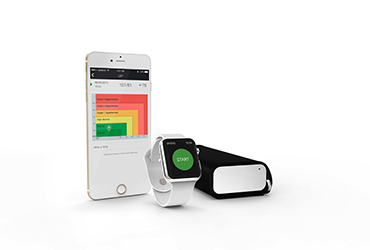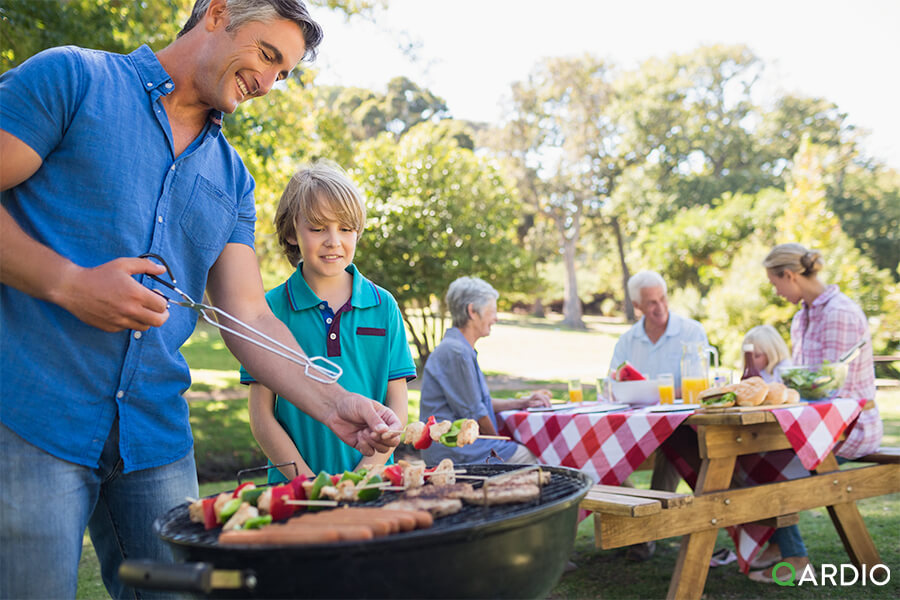Hypertension, also known as high blood pressure, is a condition that affects 1 out of every 3 adults in the United States according to the American Heart Association. Uncontrolled hypertension can lead to blood clots, stroke, and even heart attack. So what exactly is high blood pressure? And how can you take better care of your heart to prevent this? Here you can find a few answers to these questions.
How do you know if you have hypertension?
High blood pressure is a disease in which the blood flows through your arteries at higher pressures than normal. Often people do not experience symptoms of hypertension. This is because high blood pressure is mostly a symptomless disease. However, if you ignore your blood pressure and wait for a symptom to alert you, you are essentially risking your life. It is important to measure your blood pressure often in order to know what your BP levels are and discover and monitor high blood pressure.
What is systolic and diastolic pressure?
When taking your blood pressure, you are measuring your systolic pressure (blood pressure when the heart beats) and diastolic pressure (blood pressure when the heart is at rest between beats). According to the National Heart, Lung, and Blood Institute, normal blood pressure is defined as a systolic pressure below 120, and a diastolic pressure below 80. If your blood pressure is higher than 120/80 mmHg, then you may want to see your doctor about this as they may want to put you on medication to help decrease your blood pressure.
How can you prevent hypertension?
There are also a few lifestyle changes that can help prevent hypertension and control your blood pressure. For example, eating heart-healthy foods is a key factor to managing your blood pressure and reducing your risk of stroke or heart disease. Foods such as fruits, beans, fish, and whole grains are extremely beneficial for your heart. It is also important to eat foods low in salt. According to the American Heart Association, sodium increases blood pressure because it causes the body to retain fluid, which adds a burden onto the heart.
Start exercising
Regular physical activity can also help control your blood pressure. Exercise not only helps to lower your blood pressure, but it also helps manage your weight and stress. Nutritionists suggest working out for at least 40 minutes 3 to 4 times per week in order to lower your blood pressure. This can include jogging, yoga, or even riding a bike. Don’t be afraid to get outside and be active. It can potentially save your life!
Eat healthy
Eating healthy should be a lifestyle choice and not a quick fix. Have you tried following the DASH Diet to lower your blood pressure naturally? This heart healthy diet encourages you to stock up on fruits, whole grains, vegetables and low-fat dairy products. To maintain a healthy heart it is also important to minimize red meat, added sugar, saturated fats and excess sodium. By doing this, you’re naturally lowering the amount of trans fat and cholesterol you’re consuming and eating more foods rich in potassium, calcium and magnesium – nutrients which help to reduce blood pressure.
Hypertension can be prevented
Although there is no known cure for hypertension, it can be prevented with healthy choices and the regular monitoring of blood pressure. Lifestyle modifications can help reduce the risk of heart attack, stroke, and heart disease caused by high blood pressure.
Monitor your blood pressure by using QardioArm, the wireless BP monitor that is portable, stylish, and discreet. This clinically validated product gives you a precise reading anytime, anywhere. Not only can you take your blood pressure on the go, but QardioArm also allows you to sync your BP data right to your smartphone.
Sources:
American Heart Association




